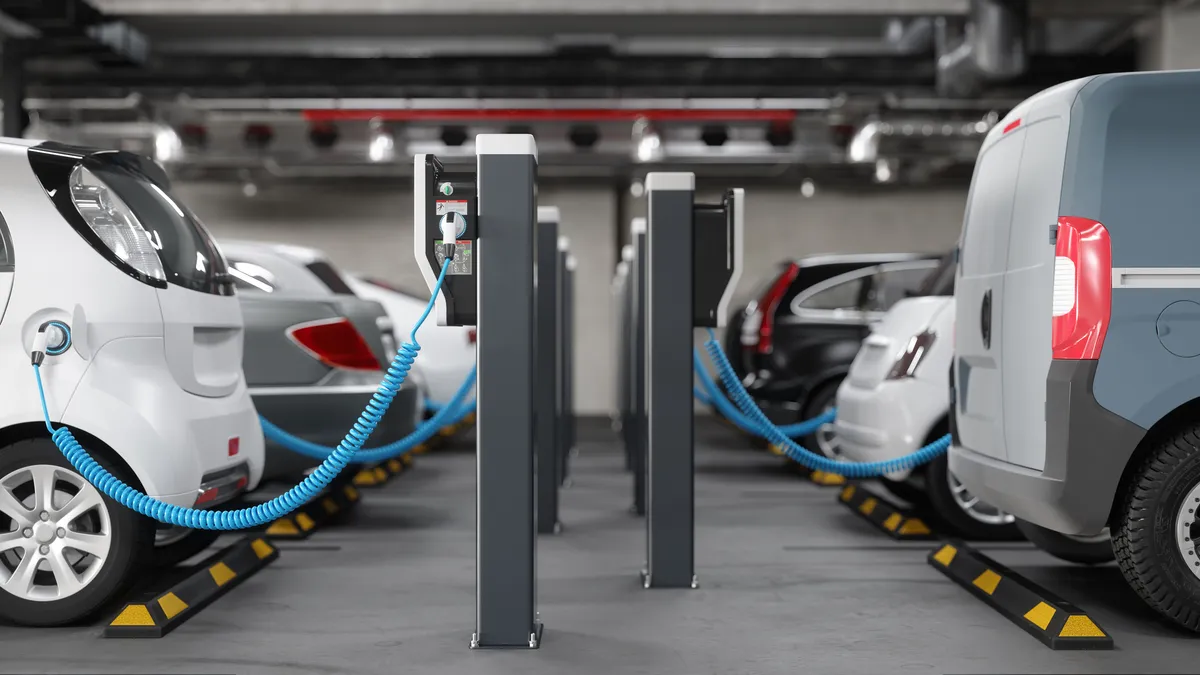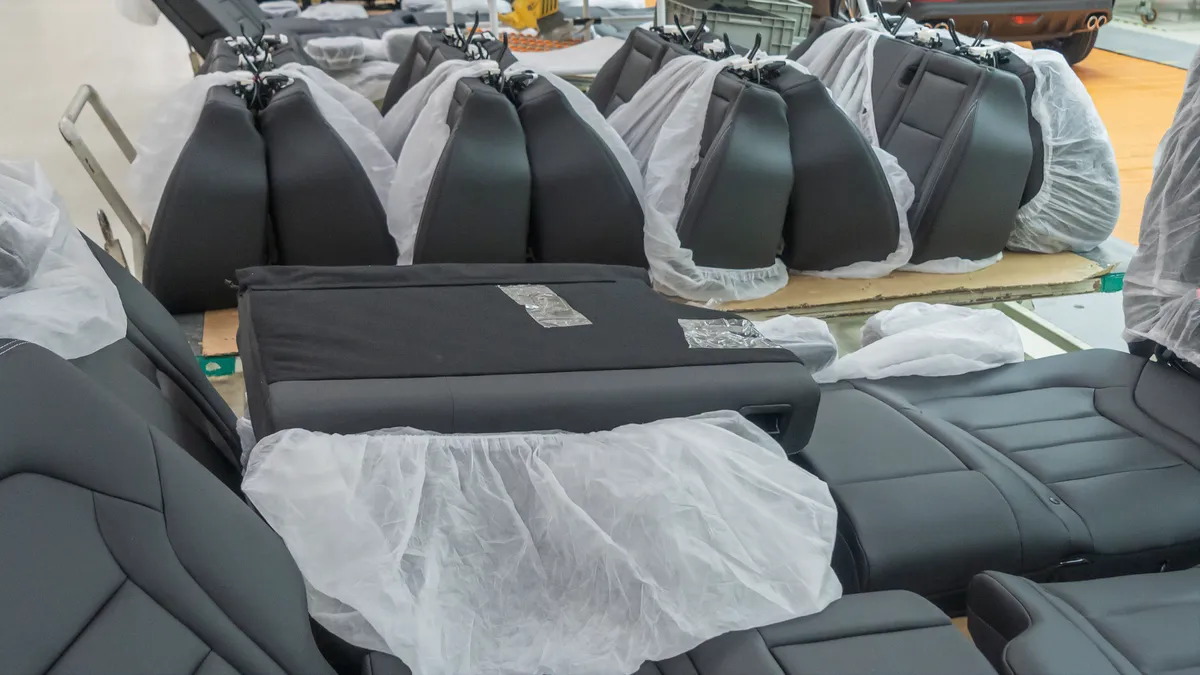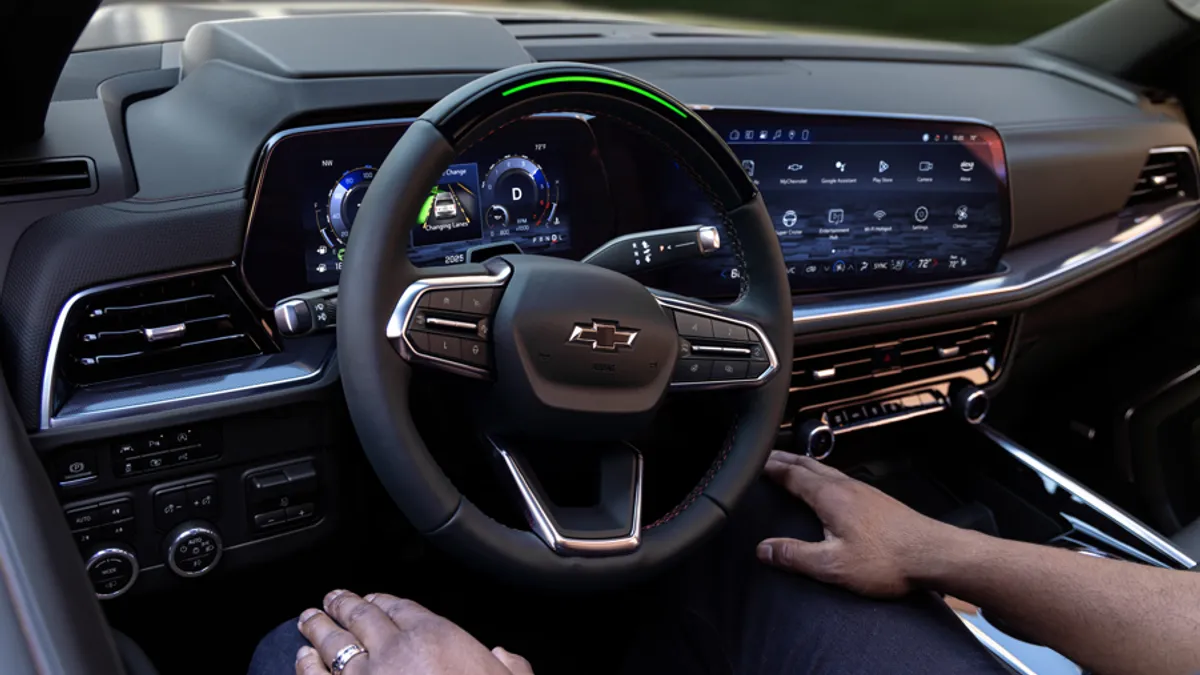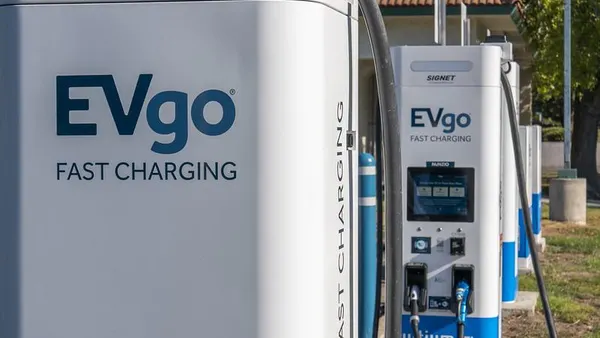Dive Brief:
- The Department of the Treasury and IRS announced Tuesday that consumers have saved more than $2 billion in upfront costs on the purchases of more than 300,000 electric and plug-in hybrid vehicles since Jan. 1, according to a press release.
- Earlier this year, the Inflation Reduction Act created a mechanism to transfer tax credits of up to $7,500 to registered dealers. Making the credits available at the point of sale — rather than when car buyers filed their taxes — could lead to wider EV adoption, experts argue.
- More than 250,000 of the advanced payments were for tax credits related to new clean vehicles, the release said.
Dive Insight:
While the IRA made it easier on consumers, it added an extra step for dealers: Registering with IRS Energy Credits Online. Over 14,000 dealers have registered with the new system since it launched in January, according to a September press release.
The Treasury Department and IRS say the option to transfer the tax credit to the dealer is very popular, with 93% of new clean vehicle transactions and more than 85% of used clean vehicle transactions reported through IRS Energy Credits Online involving a transfer of the credit to the dealer.
Meanwhile, EV sales are up sequentially and year over year amid tough market conditions, according to the Alliance for Automotive Innovation’s Electric Vehicle Quarterly Report 2024 (Q2). There were 386,221 EVs registered in the U.S. in Q2, a 9% year-over-year increase.
The growth of public charging infrastructure is not keeping pace, however.
The report found that only 10,121 new public chargers were added during the quarter — a ratio of 38 new EVs for every new public port. The total number of publicly available charging ports as of late August was over 192,000.
EV infrastructure is still far behind where it needs to be and is scored as a 46.2 out of 100 on J.D. Power’s EV Index. When the overall index reaches 100, that’s viewed as parity between EVs and internal-combustion engines.
Last month, the Biden administration proposed a new rule that aims to expand access to electric vehicle chargers, which would offer individual tax credits up to $1,000 and business credits up to $100,000 for installation of clean transportation equipment, Utility Dive reported.














